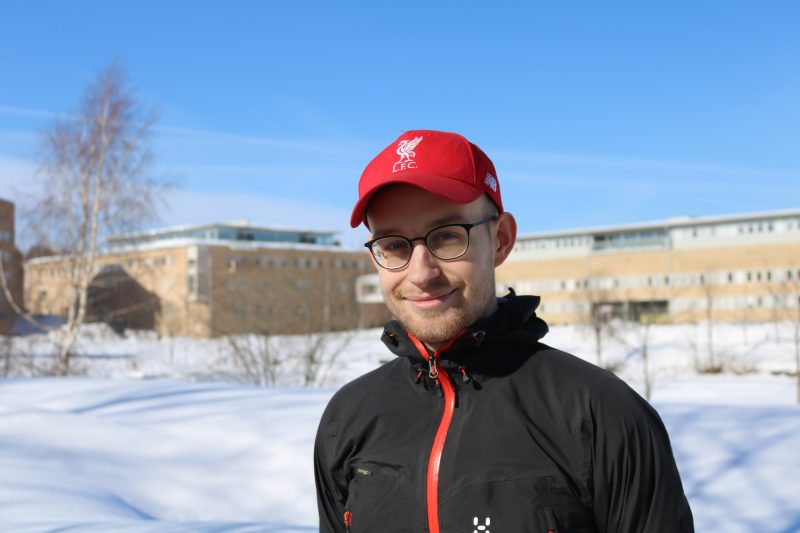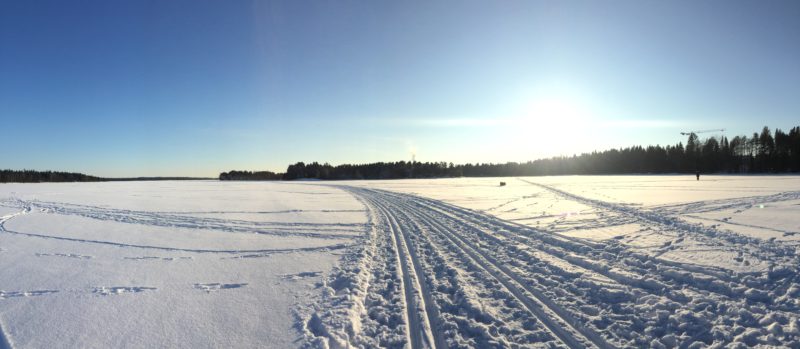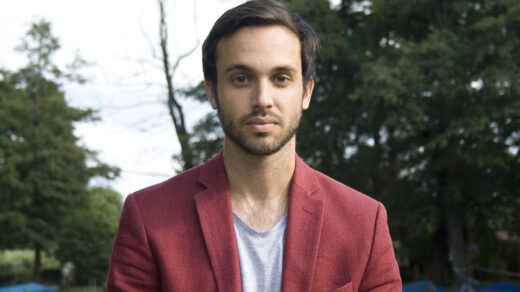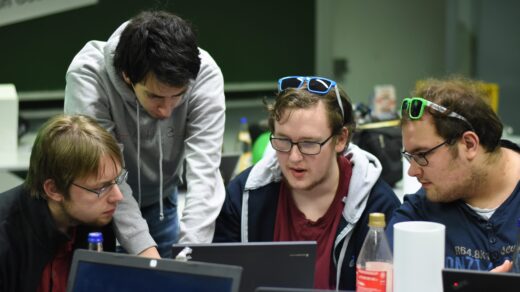Student Jonas Sjödin grew up in Piteå, a Swedish town 200 kilometers from the Arctic Circle. Corinna Cerruti spoke with him about Swedish restraint, migration culture and prejudice.

Jonas Sjödin comes from Piteå, a small town in Northern Sweden. Photo: Corinna Cerruti
In our series “FURIOS understands”, our authors talk to people whose lives differ a lot from theirs and whom they have always wanted to understand.
In eight out of twelve months, Piteå is covered in snow. The average temperature in the winter months is -15 degrees. However, summer days are wrapped in almost 24 hours of daylight. Jonas Sjödin has grown up in a region that makes the heart of every Insta-Hipster beat faster: lonely forests, frozen lakes and snow hills as far as the eye can reach.
Because of his computer science studies, Jonas moved to nearby Umeå, the largest city in Northern Sweden. However, Berlin students can only smile about the attribute “big”: Umeå only has 125 000 inhabitants – a third of which are students. But for Jonas this feels exactly right: “In cities like Stockholm or Berlin, everything has to happen so much faster.” Jonas doesn’t want to handle the hectic, he much rather appreciates the quiet life and the close contact between the people of a small town.
Excessive politeness
Besides the harmony, Jonas does criticize his country. For example, he confirms the prejudice of the restrained Scandinavian. “Especially in the north of Sweden, people are not necessarily talkative.” If you are new to the region, you might find it difficult to get in touch with locals. “Of course, we have a friendly approach to newcomers, but we also distance ourselves.” It is important to the Swedes to be polite and attentive. “However, most people don’t necessarily want to build new connections.”

Even in spring Umeå is still covered in snow. Photo: Corinna Cerruti
This restraint is also reflected in public discourse. “Our tendency towards exaggerated courtesy has become a solid social norm. People no longer necessarily express their thoughts, but only when it seems socially acceptable.” This is how Jonas criticizes the one-sidedness of political debates in the country. “There is hardly any discourse on sensitive topics such as migration.”
During the refugee crisis, Sweden temporarily accepted the largest number of refugees in the EU in relation to the population. “We pat ourselves on the back and praise ourselves for having done the right thing. But then we jam migrants in ghettos like in Malmö and don’t bother about it anymore. That’s not right.” Sweden’s southernmost city keeps making headlines due to increasing poverty and crime.
No avoidance anymore
Jonas believes, Swedes need to reconsider their treatment of refugees: “We avoided the debate for so long because nobody wanted to say anything wrong.” Anyway, this only fosters the populist parties, which continue to gain popularity in this year’s parliamentary elections.
Does Jonas want to live in Sweden despite these difficulties? “Of course! This is a great country with a generous welfare state and many job opportunities. I think, every nation is struggling with such problems.” But to him it is important to not always sugarcoat everything.



